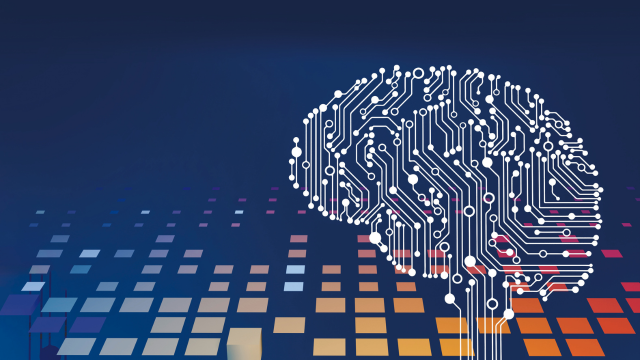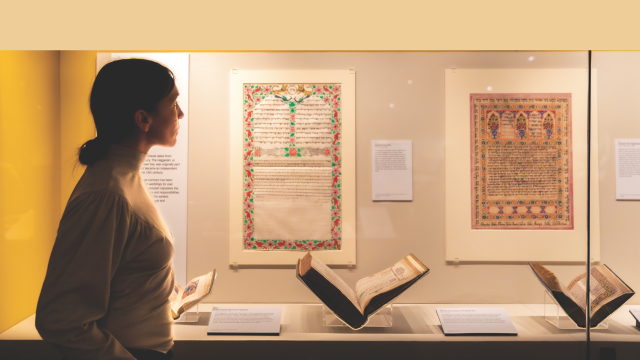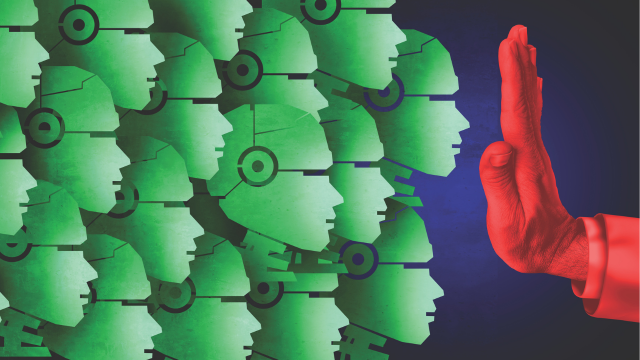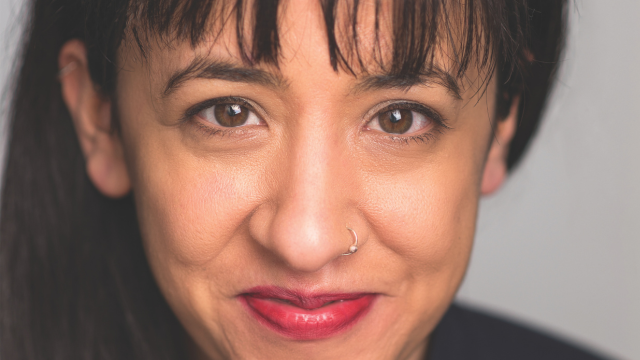-
QUALIFICATIONS
- For Linguists Worldwide
- For UK Public Services
- Preparation
- Policies & Regulation
-
MEMBERSHIP
- Join CIOL
- Membership grades
- NEW for Language Lovers
- Chartered Linguist
- Already a member?
- Professional conduct
- Business & Corporate Partners
-
ASSESSMENTS
- For Second Language Speakers
- English as a Second Language
-
EVENTS & TRAINING
- CPD, Webinars & Training
- CIOL Conference Season 2025
- Events & Networks
- CIOL Mentoring
-
NEWS & VOICES
- News & Voices
- CIOL eNews
- CIOL Awards
- The Linguist
- Jobs & Ads
-
RESOURCES
- For Translators & Interpreters
- For Universities & Students
- Standards & Norms
- CIOL & AI
- All Party Parliamentary Group
- In the UK
- UK Public Services
- Find-a-Linguist
Under the radar
By Clare Richards
For Clare Richards, translation and autism are interwoven, but until she started an online forum for disabled translators she didn’t realise how many others felt the same way
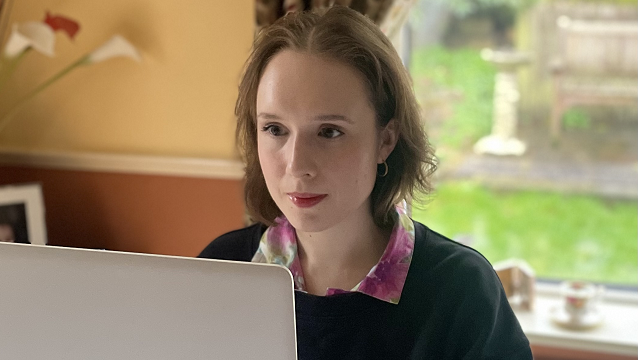
It’s almost exactly a year ago and I am walking towards London’s Southbank to meet a fellow literary translator. One sensory onslaught is replaced by another – fluorescent train lights and ear-piercing tannoy announcements become throngs of people and chatter inside the tunnel leading to the riverfront, and there is too much for my eyes and ears to take in.
The air is crisp but I’m sweating. I am notably nervous; I always am when meeting someone for the first time, but this time it is amplified as I really admire the person’s work, both as a translator and as an activist.
I am also excited. It’s the same intense buzz that comes from walking into overwhelming, unfamiliar social situations, where the stimulation can become nauseating and/or almost euphoric – a fine line I still barely understand.
When I arrive at the café, the translator is already there. Naturally, I am expecting to talk ‘business’ in some shape or form (isn’t that what such meetings are for?), but a few minutes into our conversation, she says “I think I might be autistic.” This was the last thing I’d expected. I didn’t know a single other autistic translator. Yet here was this person whose work I’d followed for years, and she was autistic too. It was also new for her; it was only in the past week that she had begun to consider that she might be on the spectrum, after some friends of hers had been asking themselves the same question.
As we continued to talk, I was astonished by just how much our experiences overlapped. It was especially true of our personal relationships with language learning and translation: the intense satisfaction we found in poring over grammatical rules and patterns, the act of taking a sentence in the source and crafting it into something beautiful in English. While the freedom and isolation literary translation permits was a haven for her – as it is for me – we shared the same frustrations with its nebulous, ableist world of networking.
For the other translator, her self-diagnosis had come after many years of working in publishing and literary translation. For me, my autism diagnosis, aged 28, had come first. Indeed, it was learning I was autistic that prompted me to pursue literary translation. While autism has classically been considered a ‘male’ condition, there are now believed to be huge numbers of autistic women and non-binary people slipping under the radar of diagnosis. This is considered to be largely due to the highly skewed focus among researchers and clinicians on how autism presents in boys.
I’d tried for years to forcibly adjust myself to the ‘ordinary’ office environment, a place of bright lights and noise, unpredictability and chaos, with incredibly nuanced and often nonsensical social rules: an autistic person’s hell. This turned out to be a futile endeavour that resulted in nothing but relentless anxiety that piled up and up until I reached burnout and relapse into depression. At some point, I began to believe my only option would be to remain unemployed for the rest of my life. This may seem dramatic, but not when considering that only 22% of UK autistic adults are in any kind of employment.1
Post-diagnosis, however, it was like everything had finally been brought into focus, and everything finally made sense. The prospect of a career in literary translation was like a light at the end of the tunnel. A career where I could work almost entirely on my own, according to my personally chosen schedule, doing what I loved: working creatively with written language.
Strength of community
For me, autism and translation were thus, from the very beginning, fundamentally interwoven. I knew that I wanted discussions of neurodiversity and disability to be at the centre of my work. One thing I longed for, in particular, was to be part of a community of disabled translators. I wanted to share with others how our disabilities and our crafts intermingled.
At the café, I mentioned this vaguely to the translator. In my head, the idea was something indistinct and far away, only achievable through an ‘official’ capacity once I was more ‘established’ (whatever that means). For a while, I put the idea to the back of my mind, waiting for that undefined time in the future when I would be well-positioned enough.
Any actions I take are always carefully planned, thought-out and considered, but in May last year I had a random burst of energy. Seizing the opportunity, I wrote a speculative post on Twitter asking if any d/Deaf, disabled and/or neurodivergent literary translators would be interested in being part of an online community. Though it may not sound like much, I find any visibility in the social realm anxiety-inducing, and writing the tweet felt very exposing.
People began to get in touch: translators who, like me, had received autism/ADHD diagnoses later in life, or had self-diagnosed, d/Deaf translators, dyslexic translators, translators with anxiety, depression, chronic illness. There were so many of us, and this staggered me. My reaction in itself was telling – why was I surprised when 22% of people in the UK are disabled?2 We, as disabled translators, were always there, under the radar.
I set up a channel on Discord and was joined by many of the people who had got in touch following my tweet. We are still a small fledgling group, but I am so grateful for how much I have learnt already from its members. One of the most exciting things for me was to take part in an online panel organised by the Society of Authors’ Translators Association (of which I am a committee member), with three translators who I connected with through the Discord channel. Entitled ‘Disability, Neurodiversity and Translation’, it was possible because of the community.
Despite our collective fears of public speaking, the non-judgmental space – carried over from the group we had established – made it easier. It was a pleasure to be able to share how our neurodivergence is inextricably tied to our work; how, for example, hyperfocus allows us to lose ourselves for hours in the text, or how our unmatched attention to detail makes for incredibly accurate and meticulous translations.
Disability as intrinsic to the craft
Disabled and abled people alike long to be seen and heard, but even when disability is brought into the discussion, the story is so often told by abled people (hence the slogan #nothingaboutuswithoutus). When we are provided the means to communicate our own experiences – with communities in which we feel safe to be vulnerable often providing the starting point – we are finally perceived.
Given the inaccessibility of the physical and social world for d/Deaf, disabled and neurodivergent people, the internet has provided a space for disability communities to form and thrive where it had not previously been possible (though each online platform has its own issues regarding access).
It is also through our communities, through sharing and learning with others, that we come to understand the many dimensions of ourselves that intersect with our disabilities. As author, film director and disability rights activist Patty Berne points out, we cannot forget that “All bodies are confined by ability, race, gender, sexuality, class, nation state, religion, and more, and we cannot separate them.”
As a community of disabled translators, we come together with significant shared experiences, but also unshared ones. Just as we cannot separate our disabilities from each of the factors Berne mentions, for so many of us, we cannot separate our disability from our craft. It is because of our disabilities that we translate. I am not only talking about our escape from ableist workplaces, but the intrinsic ways in which disability influences our individual creative processes. Here, abled translators have much to learn from us.
Email clare.richards@live.com to join the Discord channel for d/Deaf, disabled and neurodivergent translators.
Notes
1 ONS (18/2/21) ‘Outcomes for Disabled People in the UK: 2020’; cutt.ly/NwwxSZhy
2 Family Resources Survey: Financial year 2020 to 2021 (31/3/22) DWP; cutt.ly/ZwwxPj5U
This article is reproduced from the Summer 2023 issue of The Linguist. Download the full edition here.
Filter by category
More
The Chartered Institute of Linguists (CIOL), Incorporated by Royal Charter, Registered in England and Wales Number RC 000808 and the IoL Educational Trust (IoLET), trading as CIOL Qualifications, Company limited by Guarantee, Registered in England and Wales Number 04297497 and Registered Charity Number 1090263. CIOL is a not-for-profit organisation.

